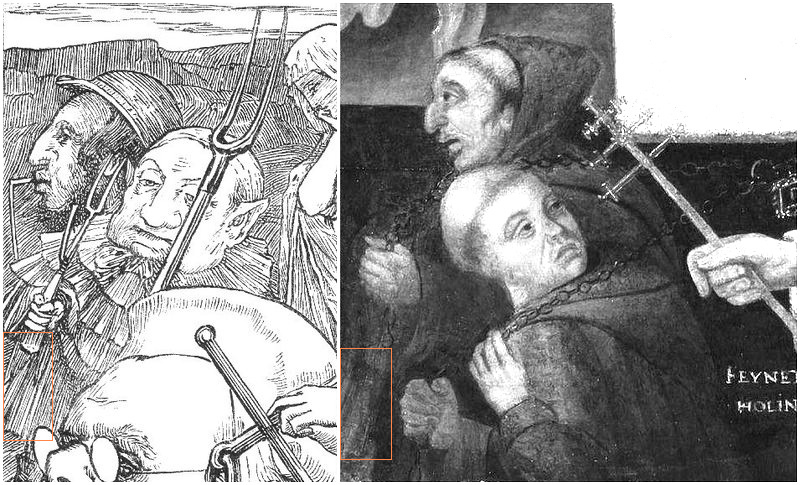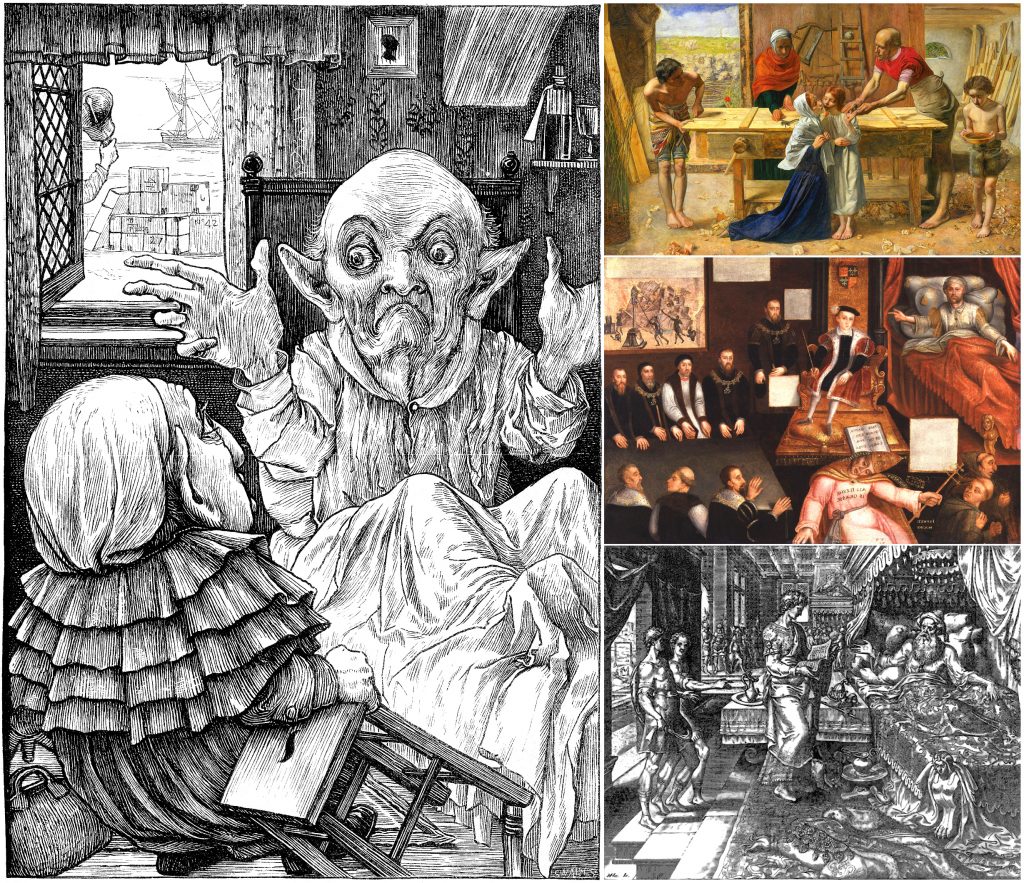EDWARD VI 1537-1553 was the long-awaited heir of King Henry VIII, the object of his father’s life long policy, to secure the Tudor dynasty.
His religious education was in the hands of Thomas Cranmer.
One result was Edward’s complete & thorough conversion to Protestant Reform. pic.twitter.com/z3NAidGbpq
— SPIRITUAL LIVES (@ken_kalis) December 21, 2019
2019-12-21
Thomas Cranmer, compiler of the first Book of Common Prayer, was burned at the stake #OnThisDay 1556 https://t.co/TnjHqhQEf0
— In Our Time (@BBCInOurTime) March 21, 2019
01
The Revd. C.L. Dodgson under his pen name "Lewis Carroll" wrote "The Hunting of the Snark". It also is about Thomas Cranmer. The illustrator Henry Holiday gave us quite clear hints: https://t.co/nSx3ValV65
cc: @monarchomach
— Goetz Kluge (@Bonnetmaker) March 23, 2019
02
About references from "The Hunting of the Snark" to Thomas Cranmer:
※ Angus MacIntyre (1994),
※ Goetz Kluge (2015 https://t.co/zMvRzqMjvO, 2018 https://t.co/BFTGACMfFA, @Bonnetmaker)
※ Mary Hammond (2017, @Hg4words)
※ Karen Gardiner (2018, @KarenGardiner19) pic.twitter.com/eAaCXDhmt0— Goetz Kluge (@Bonnetmaker) March 17, 2019
03 (comment to 02)
"Edward VI and the Pope: An Allegory of the Reformation." (NPG London)
In this 16th century anti-papal propaganda painting Henry VIII is on the left side. Thomas Cranmer is 2nd from left in the upper row on the right side.
More: https://t.co/h24cchf4YTpic.twitter.com/Dsn8MEdj9u
— Goetz Kluge (@Bonnetmaker) March 23, 2019
04
In one of his illustrations (https://t.co/4vu78zj7Jr) to Lewis Carroll's "The Hunting of the Snark", Henry Holiday alluded to the painting "Edward VI and the Pope".
More: https://t.co/hcIThF1al1 pic.twitter.com/INhRxoDly9
— Goetz Kluge (@Bonnetmaker) March 23, 2019
05
I think that also in another illustration (https://t.co/8RYeUCHtTn) to "The Hunting of the Snark" with a depiction of the Baker's 42 boxes (Cranmer's 42 Articles?), Holiday alluded to the depiction of iconoclasm in "Edward and the Pope".
More: https://t.co/eTIRJW9Moa pic.twitter.com/hTJnmslkvC
— Goetz Kluge (@Bonnetmaker) March 23, 2019
06
Margaret Aston wrote a wonderful book on the painting too. The King and the bedpost
— Justin Champion (@monarchomach) March 23, 2019
07
I read that book. It's a marvel. I tried to contact Margaret Aston, but I was too late. https://t.co/3FJuRjYPlZ pic.twitter.com/pMiuRgXMPv
— Goetz Kluge (@Bonnetmaker) March 23, 2019
08
— Goetz Kluge (@Bonnetmaker) March 23, 2019
09
And the Bedpost ended up in "The Hunting of the Snark" as well. I think that Henry Holiday alluded not only to the "Edward VI and the Pope" painting but also to the painting to which "Edward VI and the Pope" alluded.
There perhaps is an chain of allusions. https://t.co/f7SReLHeXJ pic.twitter.com/fz0esGdShS— Goetz Kluge (@Bonnetmaker) March 23, 2019
10
Correction: … the print to which "Edward VI and the Pope" alluded …
— Goetz Kluge (@Bonnetmaker) March 24, 2019
11
https://t.co/f7SReLHeXJ pic.twitter.com/nS2SlS86Dc
— Goetz Kluge (@Bonnetmaker) March 23, 2019
12 (2019-03-23)


